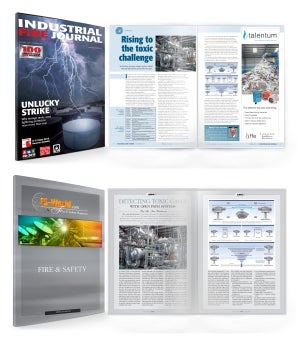
While toxic gases have a wide variety of uses in a range of industries, they can be very dangerous at high concentrations. In particular, ammonia is an excellent coolant used in food production and storage, and an efficient fertiliser in the agriculture industry.
Additionally, H2S is an inevitable byproduct within the oil and gas industry, pulp and paper production and more. Human senses cannot be relied on to detect these gases, so accurate detection must be employed to prevent disasters from happening.
Spectrex has recently published an article about open path toxic gas detection in the spring 2015 issue of FS-World magazine, which you can read by clicking here, and the summer 2015 edition of Industrial Fire Journal, available for you to read here.
Spectrex is a technology leader in optical flame and open path gas detection (OPGD). Our patented optical UV/IR and IR3 flame detector designs, and pioneering patented Xenon Flash designs in OPGD detectors are now the standard for oil and gas projects.
A wide range of flame detectors are available, from ultra-fast (msec) detection time to high-sensitivity hydrocarbon and hydrogen flame detection, alongside the equally large OPGD range that can detect hazardous gases, from flammable hydrocarbons to toxic ammonia and hydrogen sulfide.
All Spectrex products can operate in the toughest conditions, from African deserts to Alaskan waters and are fully approved to meet relevant third-party Ex hazardous area, performance and reliability standards to the wide range of application challenges, worldwide.

